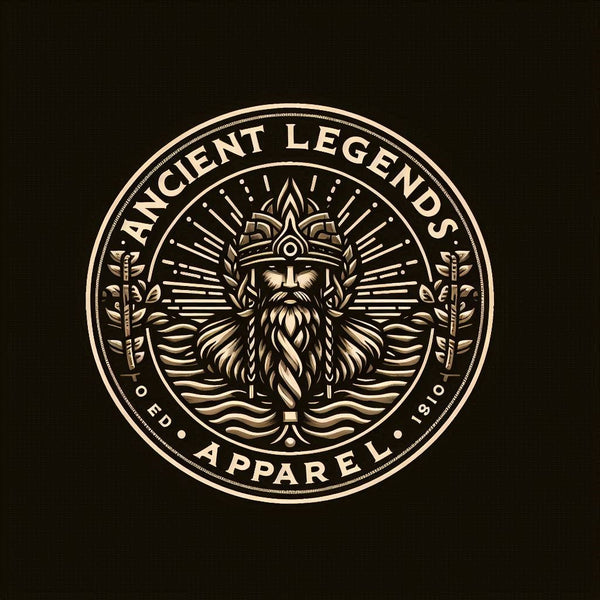The Rise and Fall of Legends in Greek Mythology
Karl FShare
INTRODUCTION
Legends are as mysterious as they are ancient, having shaped civilizations' cultural, spiritual, and social landscapes for millennia. No culture better exemplifies this narratology of human history than the Greeks with their rich and rousing mythology. From mighty gods to mortal heroes, from fantastical beasts to enigmatic mythos, Greek mythology potentates an occult realm of intrigue and wisdom. These tales served not just as spine-tingling narratives of adventure and courage but also as cryptic conduits of moral, philosophical, and religious import. This article sweeps wide and digs deep into the cavernous world of Greek mythology, unearthing the complex matrix of narratives, symbolism, cross-cultural representations, modern representations, and enduring enigmas that it encompasses.
ORIGIN AND CULTURAL CONTEXT
Greek mythology has its roots steeped in the mists of pre-history, a time when history and myth coalesced into a magical reality. These narratives, woven and passed on through generations via oral tradition, over time found scripts in the poems of Homer and Hesiod around 700 BC. The pantheon of Greek deities was born from Chaos, the formless void, from which emerged the primordial beings Gaia, Eros, Tartarus, and Nyx, thus setting the stage for a divine drama. Each God and Goddess represented aspects of human life and natural phenomena, their tales allegorically elucidating the ways of the world.
The stories of Hercules’ labors, the adventures of Odysseus, or the tragic tale of Oedipus spoke as deeply about mortal resilience and fallibility as they mirrored the capriciousness of the gods. The cultural impact was profound, shaping the Greek worldview towards morality, justice, love, valor, and spirituality. It also deeply influenced their political frameworks, educational ethos, and artistic expressions.
THE LEGEND OR STORY
One legend that stands tall is the saga of Zeus, the King of Gods. His journey from a rescued infant to the lord of Olympus is a tale peppered with struggles, wisdom, and raw power. Born of Cronus and Rhea, Zeus was saved by his mother from being swallowed by Cronus who was prophesized to be overthrown by one of his children. Fostered in Crete by nymphs, Zeus grew up to fulfill the prophecy, challenging Cronus, freeing his siblings and establishing his reign over the pantheon after the epic Titanomachy. The Greeks hailed Zeus as the god of sky and thunder, order and justice. Zeus is synonymous with Greek mythology, his tale exploring varied themes like betrayal, power struggle, familial ties, and justice.
INTERPRETATIONS AND SYMBOLISM
The divine pantheon and legends in Greek mythology serve as symbols of universal forces and human experiences. Zeus, for instance, symbolizes power, order, and justice. His sky-thunder association corresponds to his role in maintaining cosmic balance, while his escapades with numerous consorts represent virility and creative force. The trepidation of Cronus over the prophecy mirrors human fear of the future, highlighting the paradox of power - the higher you climb, the harder you fear to fall. The other gods, heroes, and mythical beings too embody respective abstractions - love, wisdom, war, valor, deceit, suffering, and transcendence, thus creating an extensive symbolic map of human existence.
COMPARISONS IN OTHER CULTURES
Greek mythology finds echoes in other cultures' myths, posing the tantalizing possibility of a shared ancient worldview or cross-cultural exchanges. The Norse mythology parallels the Greek in the portrayal of a divine cosmology populated with gods, mortals, and mythical beings; Odin, like Zeus, was the all-father pantheon ruler. Likewise, the Hindu mythos is replete with tales of Gods and their avatars, like Indra and Vishnu, who share similar attributes and roles as Zeus. Such similarities underscore the universal elements in human myth-making, reflecting common existential inquiries and archetypal constructs.
MODERN REFERENCES AND POP CULTURE
Greek mythology has pervasively penetrated the modern zeitgeist, its influences seen in literature, art, philosophy, and popular culture. The Olympian gods, Greek heroes, and their tales have been presented and referenced in countless novels, movies, TV series, and video games, like Percy Jackson, The Immortals, God of War, and more. Their symbols and archetypes have been reinterpreted in psychology (think Jung's archetypes), and their ethical, philosophical conundrums continue to be dissected in academic and intellectual arenas. Greek mythology, thus, continues to influence and inspire our contemporary imaginations.
LEGACY AND LASTING MYSTERIES
Greek mythology, while holding a past as ancient as civilization itself, remains potent and alive in our collective consciousness. Its enduring allure and legacy lie perhaps in its tapestry of immortal tales that continue to resonate with our mortal lives. However, despite centuries of exploration, these legends still hold mysteries - unresolved paradoxes and stark contradictions. The exact origins of these tales, their historical veracity or symbolic richness, their cultural exchanges - all shrouded in a tantalizing enigma. A journey into Greek mythology offers fascinating revelations yet leaves one yearning for more, forever entranced by its cosmic drama and timeless wisdom.
